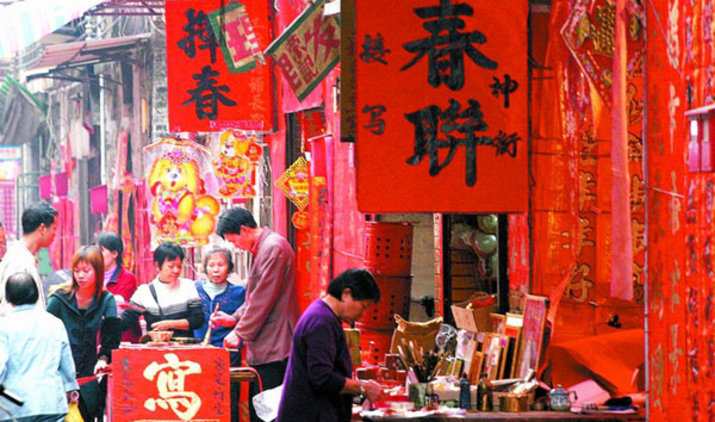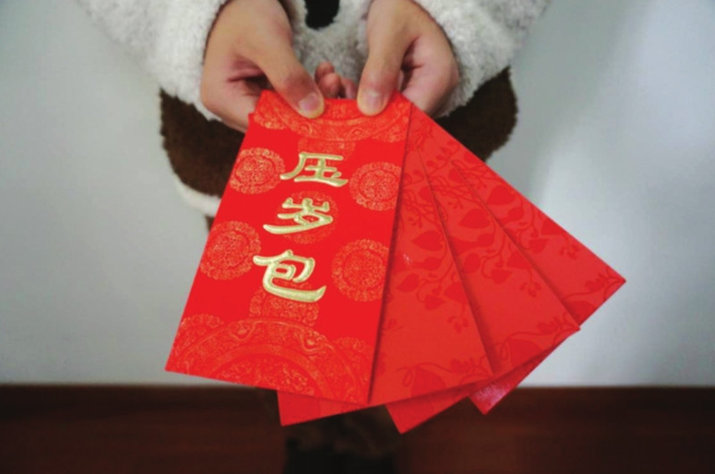The whole Wonders Of Yunnan Travel Team wishes everyone a wonderful and happy new year of the monkey! But what exactly is the Spring Festival at all?

The Lunar New Year is an important Asian festival celebrated at the turn of the lunisolar Chinese calendar. It is also known as the Spring Festival, the literal translation of the modern Chinese name, Chunjie / 春节. Celebrations traditionally run from the eve to the Lantern Festival on the 15th day of the first calendar month. The first day of the New Year falls on some day between 21 January and 20 February.
The Lunar Year is centuries old and gains significance because of several myths and traditions. Traditionally, the festival was a time to honor deities as well as ancestors. Chinese New Year is celebrated in countries and territories with significant Chinese populations, including Mainland China, Hong Kong, Macau, Taiwan, Singapore, Thailand, Cambodia, Indonesia, Malaysia, Mauritius, and the Philippines. Chinese New Year is considered a major holiday for the Chinese and has had influence on the lunar new year celebrations of its geographic neighbors.
Within China, regional customs and traditions concerning the celebration of the Chinese New Year vary widely. Often, the evening preceding Chinese New Year's Day (in 2016 this is the evening of 7.February) is an occasion for Chinese families to gather for the annual reunion dinner. It is also traditional for every family to thoroughly cleanse the house, in order to sweep away any ill-fortune and to make way for good incoming luck. Windows and doors will be decorated with red color paper-cuts and couplets with popular themes of "good fortune" or "happiness", "wealth", and "longevity". Other activities include lighting firecrackers and giving money in red paper envelopes.
Red envelopes

Traditionally, red envelopes or red packets (lishi / 利是, 利市, 利事 or hongbao / 红包) are passed out during the Chinese New Year's celebrations, from married couples or the elderly to unmarried juniors. It is also common for adults or young couples to give red packets to children.
During Chunjie, red envelopes are also known as yasuiqian / 压岁钱 which was evolved from yasuiqian / 压祟钱 (different 2nd character), literally, "the money used to suppress or put down the evil spirit".
Red packets almost always contain money, usually varying from a couple of Yuan to several hundred. Per custom, the amount of money in the red packets should be of even numbers, as odd numbers are associated with cash given during funerals (baiin / 帛金). The number 8 is considered lucky (for its homophone for "wealth"), and $8 is commonly found in the red envelopes in the US. The number six (liu /六) is also very lucky as it sounds like "smooth" (liu / 流, ), in the sense of having a smooth year. The number four (si / 四)is the worst because its homophone is "death" (si / 死). Sometimes also chocolate coins are found in the red packets.
Odd and even numbers are determined by the first digit, rather than the last. Thirty and fifty, for example, are odd numbers, and are thus appropriate as funeral cash gifts. However, it is common and quite acceptable to have cash gifts in a red pocket using a single bank note – with ten or fifty yuan bills used frequently. It is customary for the bills to be brand new printed money. Everything regarding the New Year has to be new in order to have good luck and fortune.
The act of asking for red packets is normally called tǎo hongbao / 讨紅包 . A married person would not turn down such a request as it would mean that he or she would be "out of luck" in the new year. Red envelopes are generally given by established married couples to the younger non-married children of the family. It is custom and polite for children to wish elders a happy new year and a year of happiness, health and good fortune before accepting the red envelope. Sometimes these filled red envelopes are kept under the pillow and slept on for seven nights after Chinese New Year before opening as that symbolizes even more good luck and fortune.
The Japanese have a similar tradition of giving money during the New Year, called Otoshidama.
Gift exchange
In addition to red envelopes, which are usually given from older people to younger people, small gifts (usually food or sweets) are also exchanged between friends or relatives (of different households) during Chinese New Year. Gifts are usually brought when visiting friends or relatives at their homes. Common gifts include fruits (typically oranges or apples but never pears), cakes, biscuits, chocolates, and candies.
Certain items should not be given, as they are considered taboo. Taboo gifts include:
- Items associated with funerals (for example handkerchiefs, towels, chrysanthemums, items colored white and black)
- Items that show time is running out (for example clocks or watches)
- Sharp objects that symbolize cutting a tie (for example scissors or knives)
- Items that show you want to walk away from the relationship (for example shoes or sandals)
- Mirrors
- Homonyms for unpleasant topics (for example "clock" sounds like "the funeral ritual", green hats because "wear a green hat" sounds like "cuckold", "handkerchief" sounds like "goodbye", "pear" sounds like "separate", and "umbrella" sounds like "closing" or "fall").
As you see, a lot of things to consider for not getting into an embarassing situation while one only wants to treat someone with a nice present. More of these can also be found on our do's and dont's page.
The Wonders of Yunnan Travel office is closed during the holiday from 7th to 13th Feb. An on-call duty is arranged though, please contact us here or write us an email directly.
- 330 reads
- Like this







